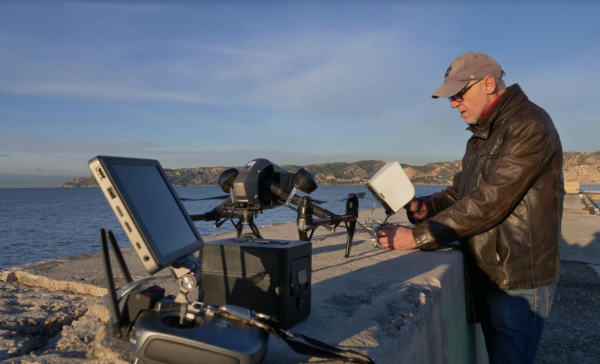Although it was born more than a century ago in France, the unmanned aircraft, the future drone, took off on July 2, 1917. It will surprise no one that its application was first and foremost military. It was a need for aerial shots and aerial photographs. Today that the technological development has considerably evolved, if the military still occupies the ground for the observation or the combat, the civil craze and the leisure make that it became urgent to legislate.

The framework of the law regarding remote piloting
Since July 1, 2018 within the framework of the law No. 2016-1428 of October 24, 2016, the DGAC Direction Générale de l'Aviation Civile has completely modified the existing flexible framework. Realizing that for civil application, a new profession was being born, the DGAC has created a new exam to officially become a professional drone pilot: the CATT Certificat d'Aptitude Théorique Télépilote.
To obtain this exam, you need to pass two parts:
* theoretical training: various modules concerning drone regulations; knowledge of flying devices; preparation and monitoring of a flight; operational procedures.
* practical training: this involves mastering the gestures involved in different types of flight and in different situations. The candidate must be able to respond in a practical way to all kinds of situations with a trainer. It should be noted that all practices prior to the law are now obsolete. The DGAC forbids self-training to obtain the CATT. This position obliges former drone pilots who have not taken the steps in 2019, to retake the exam in order to validate their field experience, by obtaining the CATT. The theoretical exam consists of a written test of 1.5 hours in the form of a multiple choice questionnaire. The candidates who have validated 75% of the answers will be declared successful.
Training in drone photography
It is now recognized that outside the military field of application, the civil activity of the drone is essentially centered around the shooting. Whether for leisure or professional reasons, the drone brings a vision and a configuration of what it films, in the form of an image, in many ways quite surprising. For these good reasons, some training organizations offer specific training and certification for the mastery of the shooting in the construction and civil engineering. It is still possible to train in photography in the audiovisual and communication field. In any case, it has become imperative today for any professional drone pilot to master the technique of aerial video and aerial photography by day and by night.
